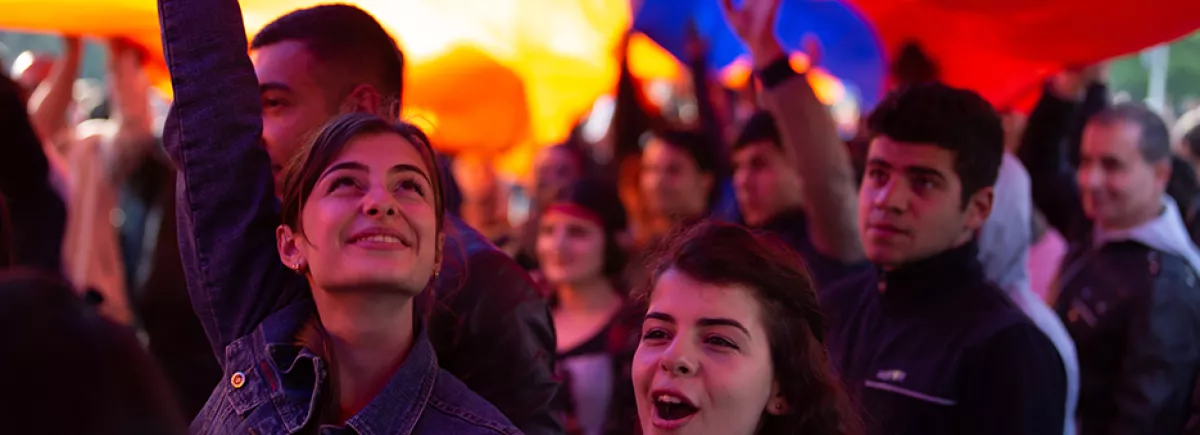
More diverse output and formats: initial review of the Ants'um project
Related project
Ants’umIn 2019, CFI launched the Ants'um project (meaning "transition" in Armenian) to support Armenian media outlets during a period of democratic transition within their country. It's time to take a look back on three years of work to promote varied, reliable and high-quality information in Armenia.
This included training in digital formats for teachers, whereas for journalists it involved training in investigative journalism, social media use, storytelling and podcast production. The many varied activities offered through the Ants'um project between 2019 and 2022 mainly consisted of personalised coaching sessions.
In 2019, around ten teachers from the Faculty's journalism department received online journalism training designed to help them incorporate digital solutions and related issues into their courses more effectively. After this, the media outlet Civilnet benefited from training on how to optimise social media use, led by an expert from the Tunisian association Al Khatt, which also runs an online media outlet that has been facing the same challenges of diversifying its output.
Eight journalists from the online media outlet Mediamax followed a training course on mobile journalism to help them refine their filming and editing skills.
The COVID-19 pandemic disrupted the project's implementation in 2020. However, several activities were carried out remotely by adapting the programmes that were originally classroom based.
Fact-checking, storytelling and podcasts
In order to create a training centre (Hetq Media Factory), the media outlet Hetq asked CFI to run a fact-checking train the trainers session for three of its journalists so that they could later develop and host modules on this topic.
Following on from storytelling technique training given to a group of journalists from several media outlets (Hetq, EvnReport, Le courrier d'Erevan), Hetq wanted to offer ten of its journalists a more in-depth session adapted to short video production. Also aware of the need to diversify its content, Civilnet opted for training in podcast production.
Alongside the important work of digitising its archives begun several years ago, the Public TV Company of Armenia received advice from French National Audiovisual Institute experts to help its teams think about how the wealth of images at its disposal could be monetised.
Women account for more than half of trainees
The majority of trained journalists in Armenia are women, and 35 of the 50 journalists who attended the training provided were women. A common target emerged when each media outlet explained what they needed to achieve—diversified content as a result of being more active on social media and really understanding new storytelling techniques.
Ants'um catered to each media outlet's situation and met this need.
This project was developed with the active support of the French Embassy in Armenia, which provided media contacts among other things, and also benefited from the advice given by RFI journalist Elena Gabrielian during its design and implementation phases.


